Greg Fairrington, pastor of a Rocklin megachurch that’s been defying California’s pandemic restrictions on indoor churchgoing, opened Sunday’s service by pulling out his cell phone and reading aloud from a fresh U.S. Supreme Court decision.
“There is no world in which the Constitution tolerates a color-coded executive edict that opens liquor stores … and bike shops but shutters churches,” Fairrington said, quoting the opinion written by Justice Neil Gorsuch.
The pastor then looked out at his congregants at Destiny Church and shouted: “The Supreme Court of the United States of America — yeah! We have a biblical mandate and First Amendment rights!” What appeared to be a large crowd of worshippers, packed closely together, roared its approval.
Gov. Gavin Newsom’s order preventing indoor church services in much of California, a move aimed at halting the spread of COVID-19, may have hit a major legal obstacle. Last week, the Supreme Court struck down New York state’s rules that limited in-person attendance at houses of worship, declaring it was unconstitutional to severely restrict church and synagogue attendance while allowing merchants and other non-religious institutions to welcome big crowds.
The 5-4 ruling — with the swing vote cast by President Donald Trump’s newest appointee to the court, Amy Coney Barrett — could scramble the pandemic legal landscape as coronavirus infections surge in California and elsewhere. A Pasadena church last week petitioned the Supreme Court for an injunction that would block Newsom’s rules on church gatherings.
Separately, a federal judge in Sacramento, presiding over a lawsuit filed against Newsom by a Lodi church, ordered both sides Monday to submit additional legal arguments about the potential impact of the New York case.
The New York ruling shows “the Constitution is not suspended by the virus,” said Dean Broyles, the lawyer representing Cross Culture Christian Center, the Lodi church challenging Newsom’s directives. “You’re going to see more and more churches defying the (governor’s) order.”
New York’s rules limited church attendance to 10 or 25 congregants, depending on the size of the institution. In California, indoor services are completely forbidden in counties that have been placed in the purple category — the most restrictive of the tiers. With coronavirus infections at record levels, about 99% of the state’s population, including the greater Sacramento area, lives in purple counties.
Capital Christian Center, one of the Sacramento area’s largest churches, is looking at whether it can reopen for in-person attendance in light of the Supreme Court case.
“We are taking a fresh look,” the church’s chief operations officer Jason Batt said. “We’re reading the ruling in depth.” He added that Capital Christian believes it “can safely host in-person services” but is also consulting with state and local health officials.
Leslie Jacobs, a constitutional law expert at the McGeorge School of Law in Sacramento, said the New York case doesn’t automatically toss aside California’s rules on church attendance. But it could make it harder for California to defend in court why it’s treating religious services differently “than hair salons and shopping malls,” she said.
Could Newsom’s pandemic winning streak end?
So far, Newsom has successfully fended off all lawsuits filed over his stay-at-home orders, securing court orders against churches, health clubs and other challengers.
He even won a case in the U.S. Supreme Court. In May, the court voted 5-4 to uphold rules that, at the time, allowed indoor services but limited attendance to 100 people or 25% capacity, whichever was smaller. The rules had been challenged by South Bay United Pentecostal Church in Chula Vista, near San Diego.
Chief Justice John Roberts, who sided with Newsom, said the governor’s rules were allowable in part because churches weren’t being singled out for strict regulation.
“Similar or more severe restrictions apply to comparable secular gatherings, including lectures, concerts, movie showings, spectator sports, and theatrical performances, where large groups of people gather in close proximity for extended periods of time,” Roberts wrote.
Since then, however, California’s rules on church gatherings have become considerably more restrictive — forbidding all indoor services in the purple counties.
What’s more, the Supreme Court’s makeup has changed. The deciding vote in the New York case was cast by Coney Barrett, who replaced the late Ruth Bader Ginsburg. Ginsburg voted to uphold the California rules in the South Bay church case.
The court, with its more conservative outlook, has made clear it will “look very carefully at restrictions on religious exercise,” Jacobs said.
Paul Jonna, a lawyer for the South Bay church, said the New York decision opens the door to fresh legal challenges to Newsom’s restrictions — from his church and others.
“It’s a game-changer,” he said. “The restrictions in California are far worse than New York’s.”
The Newsom administration continues to defend its approach in court. In a filing Monday with the U.S. Supreme Court — seeking to thwart a lawsuit filed by Harvest Rock Church of Pasadena — Newsom’s lawyers cited “the many reports of indoor communal gatherings (including indoor worship services) becoming ‘super-spreader’ events.”
They added that indoor church services do pose a greater risk than, say, grocery shopping, where contact with other people is more fleeting.
‘Relying on the super-spreader myth’
Church gatherings have been a highly sensitive topic since the pandemic began. One of the first major outbreaks in the Sacramento area occurred when 71 members of Bethany Slavic Missionary Church, meeting on their own after the church halted indoor services, were infected with COVID-19.
In October, Bethel Church in Redding came under harsh criticism in the community after 300 students and staff at the church’s school tested positive. Church leaders went on social media and expressed disdain for public health protocols, although they later apologized.
On Monday, Bethel spokesman Aaron Tesauro said “we haven’t had a chance to discuss how the (court) decision may or may not affect things.”
Broyles, the lawyer for the Lodi church, said Newsom’s administration has been “relying on the super-spreader myth” in its crackdown on church attendance.
In April, Cross Culture was planning to hold Palm Sunday services in defiance of Newsom’s initial stay-at-home order but had to relent after its landlord padlocked the door under pressure from city officials. The church sued the governor three weeks later, and Broyles argues that church attendance shouldn’t pose a public health risk so long as congregants are careful.
“Once you start taking basic precautions … it mitigates or reduces virus spread down to practically zero,” Broyles said.
___
(c)2020 The Sacramento Bee (Sacramento, Calif.)
Visit The Sacramento Bee (Sacramento, Calif.) at www.sacbee.com
Distributed by Tribune Content Agency, LLC.
—-
This content is published through a licensing agreement with Acquire Media using its NewsEdge technology.




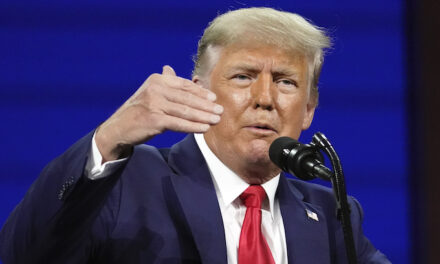
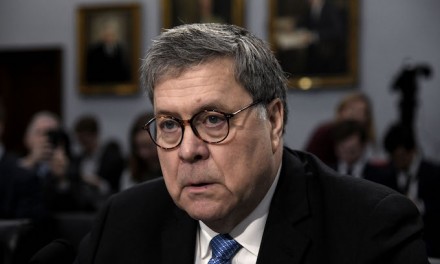
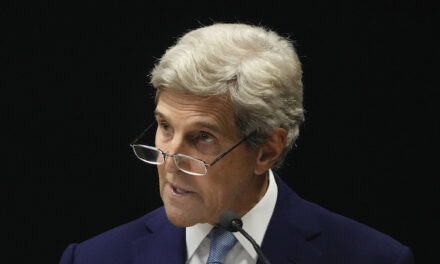







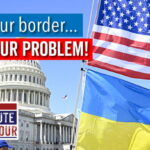
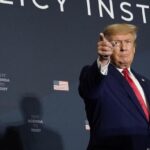
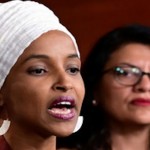
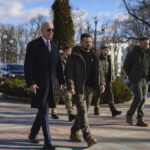

“There is no world in which the Constitution tolerates a color-coded executive edict that opens liquor stores … and bike shops but shutters churches,”
Ginsburg must be spinning in her grave after being directed down below when her life passed before her eyes for a massive guilt trip v fromerdict above. Problem is that in order to accomplish the defiance of our Constitutional rights to worship, Anti-Christ operative Newsom will just also now shudder all the liquor stores and bike shops for equal distribution of our freedom losses. Just watch his swift reversal once Biden and the two Democrat Georgian senators get seated thinking THE PEOPLE will forget before the next election. Newsom, Cuomo, DeBlasio and other freedoms snatchers think they are secure from the mob and can get out of town quick with a Biden cabinet or ambassador appointment, but the Christian inspired Supremes that actually can read a Constitution and a Bible and understand the words might just checkmate these freedom Crooks when the real election fraud is revealed and righteously judged.
Bishop Sheen in 1949 warned,,,“From now on the struggle will be… for the souls of men,,,People would begin dividing into two religions as absolutes,,,the God Who became man and the man who makes himself God; brothers in Christ and comrades in anti-Christ. The devil knows that he is never so strong as when men believe that he does not exist. God has defined Himself as “I am Who am” and the devil as ‘I am who am not.’” “His logic is simple: if there is no heaven there is no hell; if there is no hell, then there is no sin; if there is no sin, then there is no judge, and if there is no judgement then evil is good and good is evil.” “He (Anti-Christs Obama/Hillary) will write books on the new idea of God to suit the way people live; induce faith in astrology (Science) so as to make not the human will. but the stars (Drugs, poverty) responsible for sins; he will explain guilt away psychologically as inhibited eroticism, (Freud) make men shrink in shame (Racist accusations) if their fellowmen say they are not broadminded and liberal; he will be so broadminded as to identify tolerance with indifference to right and wrong, truth and error; he will spread the lie that men will never be better until they make society better and thus have selfishness to provide fuel for the next revolution.”(looting, theft, anarchy, wealth redistribution)
Chief Justice John Roberts sided with Gavin Newsom. Need I say more? Isn’t it nice to have a Bush RINO as Chief Justice of the Supreme Court?
Right now, is there ANYTHING BUSH did that was right????
The churches need to start broadcasting they will be open, and they will have people on site streaming live to websites. Ask Newsom “how many stormtroopers can you send? Will they be in jackboots and brown shirts? We will be broadcasting.”
He’d just get google, youtube etc, to SHUT DOWN those broadcasts..
Freedoms are not absolute. You can’t cry out “fire” in a crowded theater claiming freedom of speach. You also can’t do human sacrifice while exercising religious freedom. Mass indoor meetings in a deadly pandemic will kill some people. The court is being incredibly stupid in allowing human sacrifice for religion.
BET YOU fully support abortion on demand though!
I would say killing babies in the womb is human sacrifice while exercising the religion of abortion.
I am amazed at this country. We have the Constitution, but a virus comes along and we crawl under our beds in fear.
We say we believe in prayer. But do we? In the first century Christians risked their lives to worship. What are we willing to sacrifice?
We allow people like some of the governors and mayors of our cities proclaim edicts and we follow them as though they were speaking truth, and yet when you look around they do not comply with their own edicts. And yet because some outside door says a mask is mandatory, we follow the command as though it were constitutional, when it is not constitutional. We are on a slippery slope now, and all because the mask mandates worked, now they will be telling you that you will have to have your “papers” in order to fly to anywhere, domestically or foreign. We are losing our freedoms by doing these gymnastics for leaders in our communities and states by following orders which we did not even know if the order made any logical sense in the first place. Every business, school, etc has bought the lie and all because of COVID. A perfect excuse for every despot in the world to issue edicts.
The road to oblivion:
Silence the truth in newspaper and substitute Fake News.
Silence the truth on TV.
Silence all comments on Facebook etc. but continue the socialist propaganda.
Openly commit election fraud the deny that it happened.
Announce that all who tell the truth must be silenced INCLUDING PASTORS.
For the not to distant future; execute any who dare defy Big Brother’s commands.